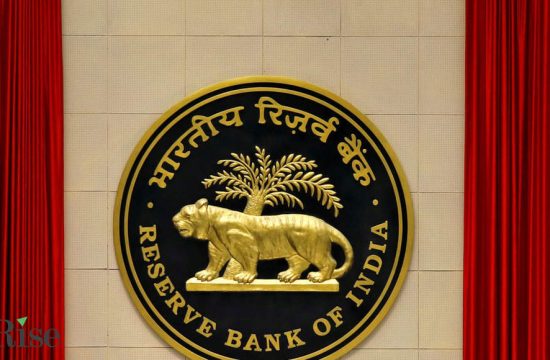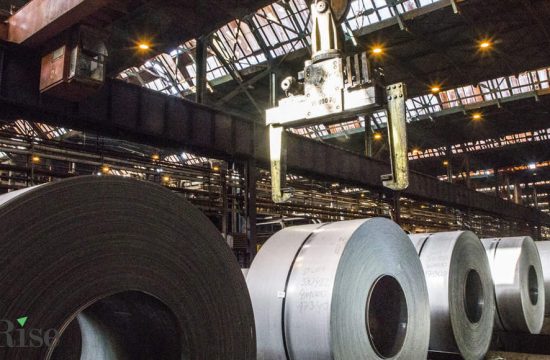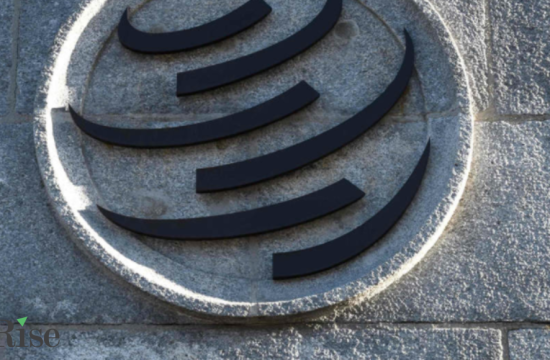
Nancy Yu has been a staple in San Francisco’s Chinatown for more than two decades. Her store, Asiastar Fantasy, sells souvenirs, gifts and cultural items like red envelopes for Lunar New Year. While she’s weathered many challenges over the years, she’s never seen anything quite like 2020.
“Last year was a very difficult time — not just for us in Chinatown, but the whole city, the whole world,” Yu said.
Her sales are down 80% due to the pandemic. But for the last several months, Yu has been opening her store for several hours a day to be present for the community, even as business remains low.
“We want to send a message to people and ultimately say ‘Keep Chinatown open, we welcome you,'” she said. “I think it’s important that we stay open. We want to give people and other merchants encouragement.”
The neighborhood has seen a downturn due to a lack of tourism not only in Chinatown, but the Bay Area at large. Also, more broadly, research from Robert Fairlie, an economics professor at the University of California, Santa Cruz shows Asian-owned businesses nationwide have been the most negatively impacted of all demographic groups by last year’s pandemic. The number of working business owners fell by 20% from February to December, according to his study.
The San Francisco Chamber of Commerce says the ZIP code that houses most of Chinatown saw 75% of its storefronts become nonoperational at some point last year. The same ZIP code also includes the Financial District, which has been similarly hard-hit due to people working from home. This compares with the city average, where 54% of all storefronts were nonoperational at some point in time in 2020.
“Covid-19 had a huge impact on tourism, which represents a major portion of San Francisco’s income — 25.8 million visitors come to San Francisco [annually],” said Rodney Fong, president and CEO of the San Francisco Chamber of Commerce. “It’s painful when you see some of these legacy businesses close. They are pillars of our community.”
More access to aid
The latest Paycheck Protection Program data from the Small Business Administration through the end of February show Asian-owned businesses trailing other demographic groups in terms of the number of loans approved. More than 70,000 loans were made to Asian-owned businesses for a total of $ 3.9 billion in 2021.
Filling out the demographic questions is voluntary and as a result, incomplete. Overall 2.1 million loans have been made for $ 156 billion in 2021, with more than $ 100 billion in aid remaining in the program, which ends March 31.
Last week the Biden administration announced changes to the PPP to ensure smaller and minority-owned businesses were able to fairly access funding. There’s currently a two-week window ongoing for businesses with 20 or fewer employees to exclusively apply for aid.
In addition, there will be changes to how much funding the self-employed and sole proprietors can access, which is important as the administration projects 70% of such businesses are owned by women and minorities. In addition, there will be $ 1 billion set aside for sole proprietors in low and moderate-income areas.
Other changes include allowing those with non-fraud-related prior felony arrests or convictions, those who are delinquent on federal student loans and legal U.S. residents who are not citizens, like green card holders, to be eligible for PPP aid.
Minority-owned businesses are more likely to be non-employer firms and advocates say lenders may have been less incentivized to make smaller loans to these smaller businesses under the PPP as written last year. Smaller companies also don’t always have the established banking connections or manpower to apply for aid, a divide exacerbated during the pandemic, the San Francisco Chamber’s Fong said.
“The pandemic has shown the digital divide in people who have access and have the skill set to apply for PPP, which is not an easy thing to do, and those that maybe got left out,” he said, adding that continued changes to the PPP like those newly enacted by the administration will help to better reach more owners. “Giving everyone that equal access, equal opportunity, is important.”
When Yu applied for a PPP loan last year, she was initally turned away by a local bank, but eventually received one. She is now waiting on a second-draw loan. Separately, a local grant she received has helped with her rent.
Anti-Asian incidents on the rise
Beyond the pandemic’s impacts on business, the Asian-American community at large is grappling with another painful threat — an uptick in violence and racism against the Asian population over the last year.
Between March 19 and Dec. 31, Stop AAPI Hate, an organization tracking anti-Asian incidents, found more than 2,800 accounts of racism and discrimination targeting Asian Americans across the U.S., including more than 100 against the elderly.
Yu said the threat weighs on her.
“We want to let people know that we are here for peace, we are here for prosperity and for the American dream. We have the same dream. That’s why we came to America,” she said.
Despite the challenges 2020 presented, Yu is moving ahead. She plans to open a second location in Chinatown in the year to come, selling boba tea.
—CNBC’s Betsy Spring contributed to this report.









